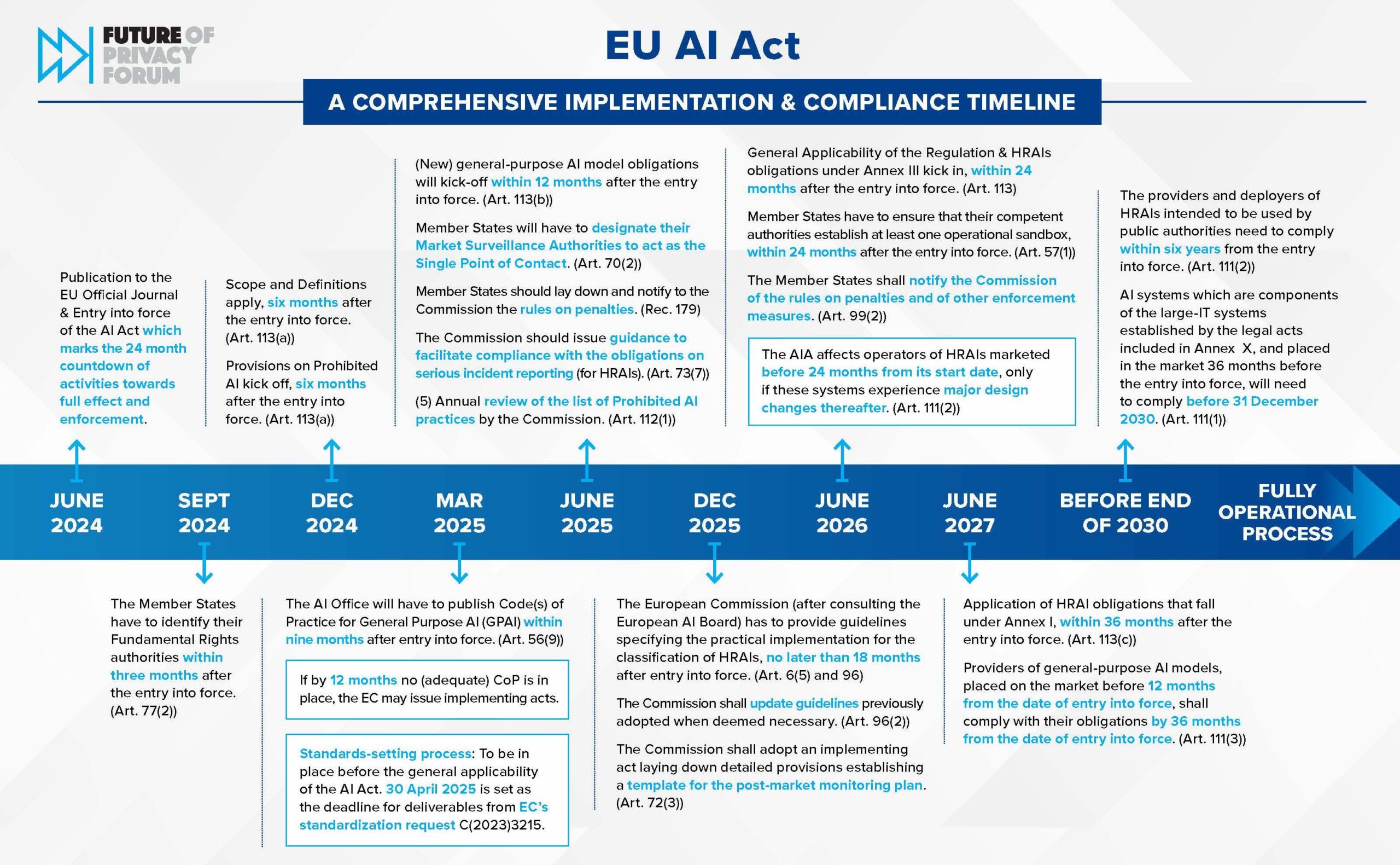
China’s Interim Measures for the Management of Generative AI Services: A Comparison Between the Final and Draft Versions of the Text
Authors: Yirong Sun and Jingxian Zeng Edited by Josh Lee Kok Thong (FPF) and Sakshi Shivhare (FPF) The following is a guest post to the FPF blog by Yirong Sun, research fellow at the New York University School of Law Guarini Institute for Global Legal Studies at NYU School of Law: Global Law & Tech […]

FPF Submits Comments to the Office of Management and Budget on AI and Privacy Impact Assessments
On April 1, 2024, the Future of Privacy Forum filed comments to the Office of Management and Budget (OMB) in response to the agency’s Request for Information on how privacy impact assessments (PIAs) may mitigate privacy risks exacerbated by AI and other advances in technology. The OMB issued the RFI pursuant to the White House’s […]

FPF Statement on Vice President Harris’ announcement on the OMB Policy to Advance Governance, Innovation, and Risk Management in Federal Agencies’ Use of Artificial Intelligence
Following the groundbreaking White House Executive Order on AI last fall, which outlined ambitious goals to promote the safe, secure, and trustworthy use and development of AI systems, Vice President Harris has today announced the publication by the Office of Management and Budget of a binding memorandum on “Advancing Governance, Innovation, and Risk Management for […]

15th Annual Advisory Board Meeting 2024
Welcome! This page will be your primary source for all 15th Annual Advisory Board Meeting details and resources. Planning to attend this year’s Advisory Board Annual Meeting? Join us on Wednesday, June 5th, for AI FORWARD: FPF DC Privacy Forum, which is open to the public. DC Privacy Forum: AI Forward will explore the intersection of data privacy and AI, […]

FPF Statement on the adoption of the EU AI Act and New Resource Webpage
“Today the European Union adopted the EU AI Act at the end of a long and intense legislative process. At the Future of Privacy Forum we believe that multistakeholder global approaches and advancing common understanding in the area of AI governance are key to ensuring a future with safe and trustworthy AI, one that protects […]

DC Privacy Forum 2024
Join FPF for its inaugural DC Privacy Forum: AI Forward which explores the intersection of data privacy and AI, set against the picturesque backdrop of Washington DC’s southwest waterfront on Wednesday, June 5, 2024. As the world increasingly relies on AI technologies, safeguarding data privacy has never been more crucial. DC Privacy Forum: AI Forward will bring together thought leaders, […]

FPF Awarded DOE and NSF Grants to Advance Privacy Enhancing Technologies & AI
The Future of Privacy Forum (FPF) has been awarded grants by the Department of Energy (DOE) and the National Science Foundation (NSF) to support FPF’s establishment of a Research Coordination Network (RCN) for Privacy-Preserving Data and Analytics. FPF’s work will support the development and deployment of Privacy Enhancing Technologies (PETs) for beneficial data sharing and […]

FPF Joins the NIST Artificial Intelligence Safety Consortium
The Future of Privacy Forum (FPF) is collaborating with the National Institute of Standards and Technology (NIST) in the U.S. Artificial Intelligence Safety Institute Consortium to develop science-based and empirically backed guidelines and standards for AI measurement and policy, laying the foundation for AI safety across the world. This initiative will help prepare the U.S. […]

FPF Announces International Technology Policy Expert as New Head of Artificial Intelligence
FPF has appointed international technology policy expert Anne J. Flanagan as Vice President for Artificial Intelligence (AI). In this new role, Anne will lead the privacy organization’s portfolio of projects exploring the data flows driving algorithmic and AI products and services, their opportunities and risks, and the ethical and responsible development of this technology. Anne […]

Regu(AI)ting Health: Lessons for Navigating the Complex Code of AI and Healthcare Regulations
Authors: Stephanie Wong, Amber Ezzell, & Felicity Slater As an increasing number of organizations utilize artificial intelligence (“AI”) in their patient-facing services, health organizations are seizing the opportunity to take advantage of the new wave of AI-powered tools. Policymakers, from United States (“U.S.”) government agencies to the White House, have taken heed of this trend, […]
